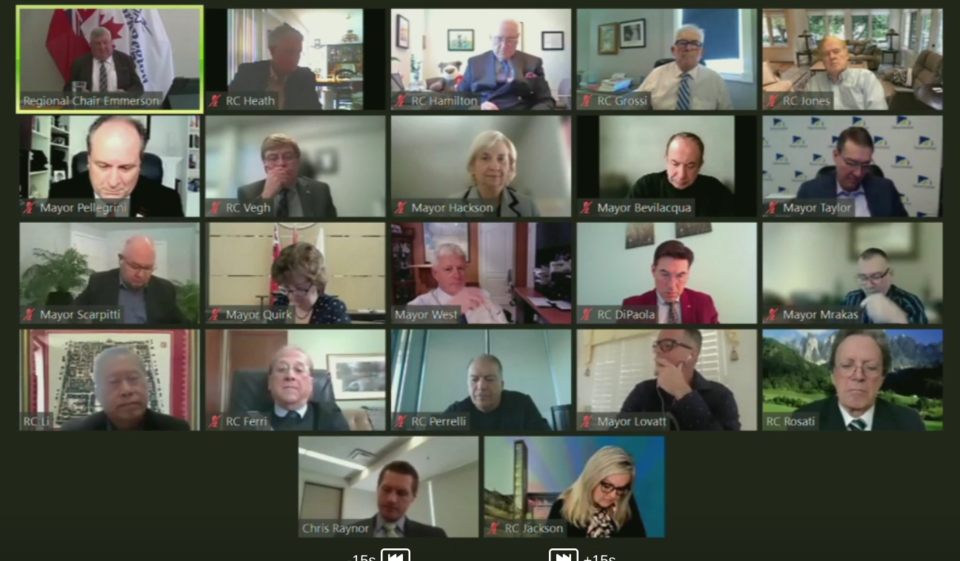York Region is backing a move to end the Ontario Land Tribunal, calling it a significant source of “red tape” in affordable housing development.
York Region council passed a motion today, Feb. 24, in support of the Town of Aurora’s proposal to end the provincial adjudicator that addresses appeals to land-use planning decisions. Council members were critical of the tribunal as a system, with the resolution calling it “expensive, time-consuming and ultimately futile.”
Newmarket Mayor John Taylor said it is time to take action, citing the province’s affordable housing task force report.
“This is not the time to say, ‘hang on, slow down, we got to be sure,’” Taylor said, adding the task force is “close to a full-on assault on our planning rights and our planning jurisdiction. I think this is a time to become a little bolder in our statements.”
Aurora Mayor Tom Mrakas has advocated for an end to the land tribunal for several weeks, calling it a “flawed and broken land-use planning system.” The tribunal, created in 2021, allows developers or residents to appeal municipal land-use decisions. But municipal councillors questioned the resources needed for the process, and the appeals that do not necessarily adhere to official plans.
Mrakas said there is some urgency with the province preparing for an election campaign and changes happening quickly.
“We need to send a message that the system is flawed and broken, and we need change, and it needs to happen now,” he said.
Ontario's land-use appeal body has undergone multiple adjustments in recent years. The Ontario Land Tribunal replaced the Local Planning Appeal Tribunal (LPAT) in 2021. In turn, LPAT had replaced the Ontario Municipal Board (OMB) in 2017.
It was the OMB that infamously ruled against a Town of Newmarket effort to halt a development proposal on the former Glenway Golf Course lands in 2014.
However, council members expressed concern with pushing ahead on a resolution without further discussion and proposing a solution.
Vaughan Regional Councillor Linda Jackson said the appeal issue goes beyond the tribunal.
“Why are we at the OLT, why are we at LPAT, why are we at the OMB? It’s because of provincial policy statements,” she said, adding those statements need to be reviewed and reflective of what the community wants. “We need to fix the infection. We’re putting Band-Aids on the infection.”
The regional council narrowly voted against a resolution 11-10 to delay a motion against the tribunal and await a report back from staff. With that defeated, councillors voted 20-1 to ask the province to dissolve the tribunal and start a consultation process for a replacement.
Council also discussed pushing against the province’s affordable housing task force report, which advocates measures such as using inclusionary zoning and reducing public consultation time to speed up development and address supply issues.
Taylor said he wants to counter the idea that the municipalities concerned by the report are “planning Luddites” opposed to development and increasing housing supply.
“Nothing could be further from the truth,” he said. “We, I think, all embrace that and do it all the time. The difference is, we know how to do it in the right places, respectful of the residences, in a conversation with the residents, not ignoring them.”
He added between the OLT’s limitations and the task force report, residents could find themselves with a limited voice in land-use planning in the future.
“There’s going to be a reckoning," Taylor said.

.png;w=120;h=80;mode=crop)

